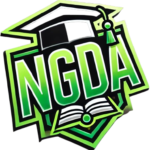Quality Assurance (QA)
Course Overview
This syllabus provides a structured, hands-on curriculum for understanding Quality Assurance (QA) and Quality Testing in software engineering. Spanning approximately 20 hours, the program begins with an introduction to the role of QA within the Software Development Lifecycle (SDLC), emphasizing the importance of QA in delivering reliable software. Students then explore foundational software testing types and methodologies, including both manual and automated testing, with practice-oriented sessions that develop real-world skills. The course delves into specific testing techniques, from exploratory to regression testing, before progressing to automation, where students gain experience using tools like Selenium for test automation and Postman for API testing. Advanced topics, such as performance testing and continuous integration (CI) practices, provide students with knowledge to work within modern DevOps environments. Finally, the syllabus covers effective bug reporting, QA metrics, and continuous improvement practices, equipping students with both the strategic insights and technical skills required to maintain high-quality standards in software development.
Requirements
- Laptop/desktop (4GB RAM minimum, 8GB recommended)
Curriculum
- 6 Sections
- 20 Lessons
- 30 Hours
- Introduction to Quality Assurance in Software EngineeringUnderstand the role and importance of QA in the software development lifecycle (SDLC)2
- Basics of Software TestingIntroduce different types and levels of testing, setting the groundwork for practical testing skills.4
- Manual Testing TechniquesDevelop skills in performing manual testing, including exploratory and regression testing.3
- Automation Testing BasicsGain foundational skills in automation testing, understanding tools, and writing basic scripts.5
- Advanced Testing Techniques and ToolsUnderstand more advanced testing methods, tools, and frameworks for comprehensive test coverage.3
- Bug Reporting and Quality Metrics3




